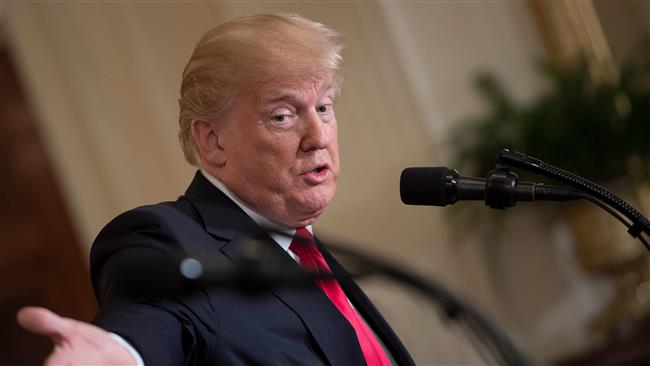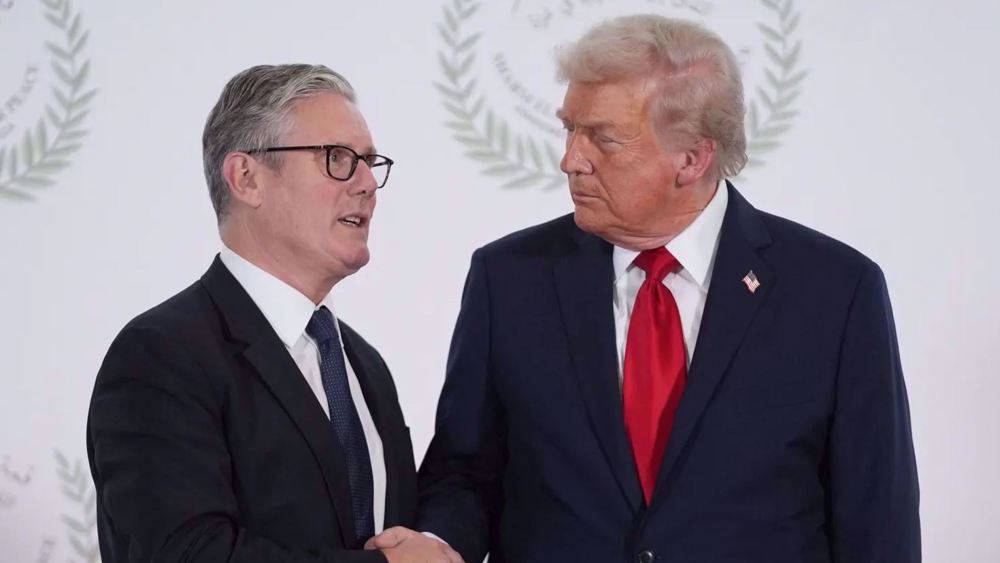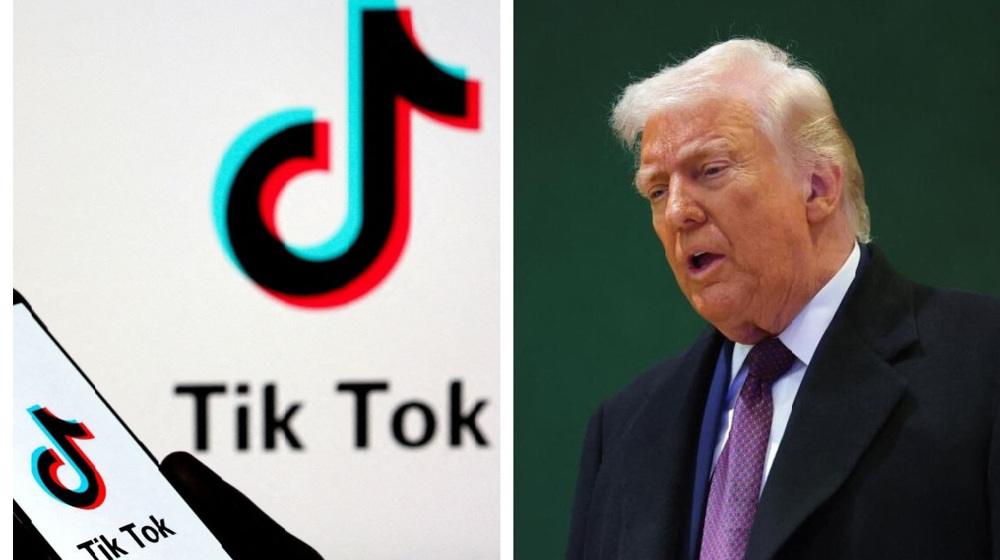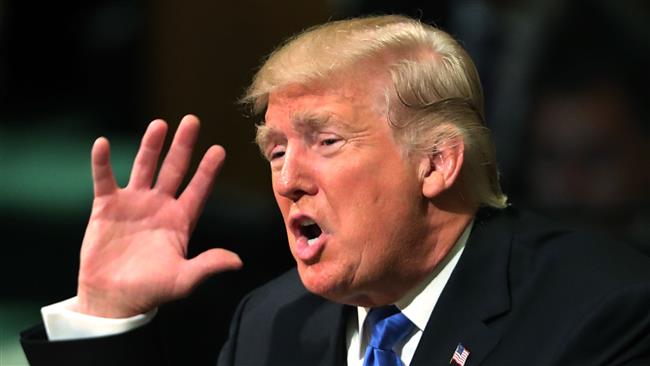US 'could conceivably' rejoin Paris climate accord: Trump
US President Donald Trump has said that the United States "could conceivably go back" into a global pact to fight climate change known as the Paris Climate Agreement.
In June last year, Trump announced that he would pull the United States out of the 2015 global agreement to fight climate change, characterizing the decision as "a reassertion of American sovereignty."
"In order to fulfill my solemn duty to protect America and its citizens, the United States will withdraw from the Paris climate accord," Trump said then.
The move drew rebuke from Democrats at home and world leaders who had pressed Trump not to abandon the 197-nation accord.
On Wednesday, Trump said America could "conceivably" return to the Paris climate accord if an agreement treated his country more fairly.
"We could conceivably go back in ... I feel very strongly about the environment," Trump said during a joint news conference with Norway's Prime Minister Erna Solberg in the White House in Washington, DC.
The Paris agreement "as drawn and as we signed was very unfair to the US," he said.
Trump said the global accord "put penalties on us...and took away a lot of our asset values."
The US president emphasized on his commitment to environmental issues, "clean water, clean air", but added "we also want businesses that can compete.”
"The Paris accord really would have taken away our competitive edge, and we're not going to let that happen," he said.
“According to some estimates we would have had to close businesses in order to qualify by 2025," Trump continued without pointing out which "estimates" was referring to.
Trump considers climate change a hoax
Trump had vowed during the election campaign to "cancel" the Paris agreement within 100 days of becoming president on January 20, 2017 in order to bolster the US oil and coal giants, which bankrolled his campaign.
Trump has labeled climate change a hoax, defying widening international support for the Paris agreement to cut greenhouse gas emissions. He has argued that the concept of global warming has been “created by and for the Chinese in order to make US manufacturing non-competitive.”
Environmental groups have long argued against spending billions of dollars to reduce emissions from coal-fired power plants when the same funds could help expedite the transition to wind and solar power.
The Paris agreement was reached on November 4, 2016 and has been signed by 197 countries. 135 of them have now formally ratified the agreement. They represent more than 75 percent of global greenhouse gas emissions.
The Paris agreement seeks to avert climate change by limiting global warming to no more than 2 degrees Celsius (3.6 degrees Fahrenheit) above pre-industrial temperatures by 2050. It also sets out a goal of reaching a limit of 1.5 degrees Celsius, if possible.
The adopted text acknowledges that the risks of climate change are much more serious than previously thought. The deal is to take effect in 2020.
VIDEO | Global order on the brink
VIDEO | 47th anniv of Islamic Rev.
Israeli claims of ceasefire violations meant to 'justify massacres' in Gaza: Hamas
Iran says framework for talks with US taking shape
US government partially shuts down as ICE killings spark funding standoff
VIDEO | Trump may have sent an 'armada', but Iran has options
VIDEO | Resisting through music: When art defends Palestinian identity
VIDEO | Press TV's news headlines


















 This makes it easy to access the Press TV website
This makes it easy to access the Press TV website